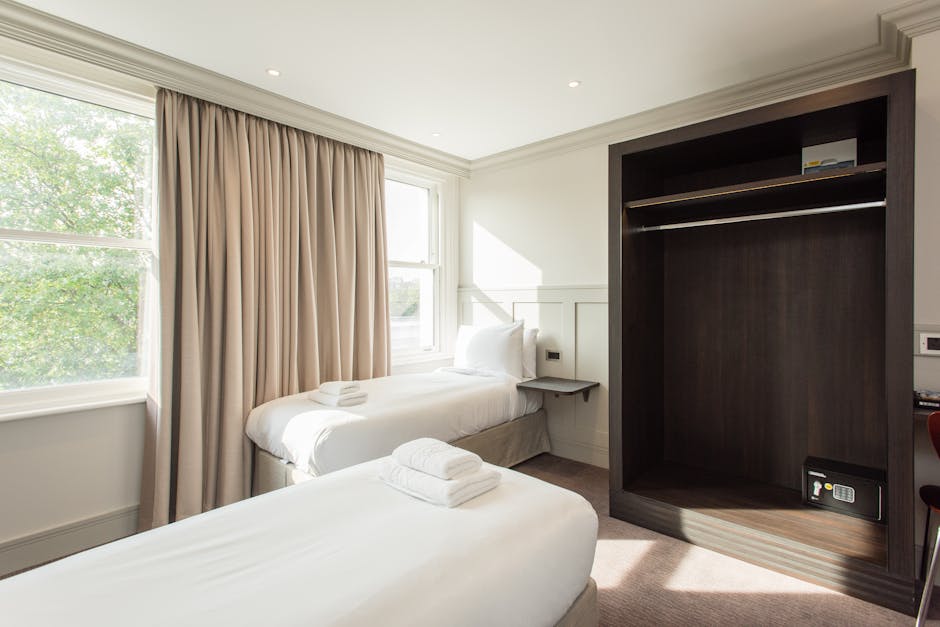Introduction
Budget travel – two words that paradoxically manifest into an enlightening, enriching chapter in one’s life. Simply defined, budget travel subscribes to adventures on a shoestring; savouring life-altering experiences without breaking the bank. Needless to say, the significance of such a travel model transcends beyond just affordability. It promotes explorations, free from the constraints of hefty price tags, enabling wanderlusts to imbibe diverse global cultures at length.
As we prep to embark on this enthralling expedition to master budget travel, let’s have a glimpse at the topics that await us. We’ll learn the art of planning and saving for the trip, identify the nooks and crannies of finding affordable accommodation, and unravel strategies to locate cheap flights and economical transport solutions. Meander through the possibilities of managing meal costs, discover free local attractions, and understand the necessity of insurance and emergency funds. Also, on the itineraries, are tips and solutions to optimising reward programs, packing smartly and, eventually, becoming proficient in the art of budget travel. Buckle up, tighten your purse strings and get set to voyage into the world of affordable adventures!

Planning and Saving for Your Trip
Proper planning, executed well, can enable you to experience your dream trip without breaking the bank. It is the thread that weaves together the dream, the savings, and the practical aspects, creating a meaningful, enjoyable travel experience.
Setting Your Travel Goals
The first crucial step is setting your travel goals. You may aspire to surf waves in Bali, explore the streets of Old Havana, or summit Mount Kilimanjaro, but you need to be very clear about your destination. Dream vividly, but plan practically.
Calculate the average cost for:
- Round trip tickets
- Daily expenses
- Accommodation
- Unexpected extras
Developing a Savings Plan
Your savings plan will depend on how much time you have before your departure date.
-For a trip that’s a year away, divide your total trip expense by 12 (months) to determine your monthly savings goal.
-For shorter timelines, more aggressive saving methods may be necessary, which could include:
– Hosting garage sales
– Finding a part-time job
– Promoting gigs on Fiverr
Implementing Savings Strategies
Savings strategies can dramatically differ based on personal income, cost-of-living expenses, and the average cost of the desired destination.
However, one universally applicable tip is to create a separate savings account dedicated to your travel fund. This will help you resist the temptation to dip into your travel fund for everyday expenses.
Embrace Budget Travel
Remember, a budget trip does not equate to a poor experience. To a budget traveler, smart planning, purposeful saving, and ultimate freedom add up to enjoying the journey without worrying about the cost.
Anyone can become a budget traveler. It all starts with a dream, a plan, and a realistic savings strategy. With these tips, you’re already on the doorstep of your great adventure.

Finding Affordable Accommodation
Just like fuel for your car or plane, accommodation is an unavoidable part of the traveling equation. Fortunately, there are numerous ways to secure cheap but quality accommodation that won’t break your travel budget.
The internet has revolutionized the way we book hotels, with platforms like Booking.com, Airbnb, and Agoda offering competitive prices. They allow you to compare prices, view guest reviews, and sometimes offer significant discounts, particularly when you book well in advance or during off-peak season.
However, it’s not just about the lowest price; it’s about value. Pay attention to the amenities provided by each property. Sometimes, shelling out a few extra dollars for a place with a kitchenette can save you more in meal costs, preserving your budget in the long run.
Moreover, have an open mind when it comes to your sleeping arrangements. Alternative accommodations like hostels or guesthouses often offer much lower rates than traditional hotels. In Europe, for example, booking a bed in a dormitory-style room in a hostel is not uncommon, and can be a fun way to meet other travelers. Couchsurfing, though not for everyone, provides a free place to stay and a unique chance to experience local life by staying with host residents.
Remember, booking your accommodation doesn’t have to be a dreaded task. With a little bit of internet savvy, flexibility, and willingness to step outside your comfort zone, you can find affordable accommodation options no matter where your budget travels may take you.

Cheap Flights and Affordable Transport Solutions
Finding affordable ways to get to and from your desired travel destination is a top concern for budget travelers. With technological advancements, various platforms assist in finding cheap flights.
Popular Cost-Saving Platforms
Websites and apps like Skyscanner, Kayak, and Google Flights are key resources for those seeking wallet-friendly options. These platforms allow you to:
- Compare prices
- Review different routes
- Select budget-friendly airlines
A couple of clicks ensure you find the best deals aligning with your budget and itinerary.
Timing Your Travel
Timing is everything when it comes to securing affordable flight deals.
- Flying during Shoulder Seasons: These are periods just before or after tourist high-season. They can help score cheaper airfares and fewer tourist crowds.
- Red-Eye Flights: Late night or early morning flights, often offer lower prices due to less demand.
Affordable Transport at the Destination
Once you’ve reached your destination, the quest for affordable transport continues.
- Car Hiring: Opting for low-cost providers can greatly reduce spending.
- Public Transportation: Look for multi-use transit cards or tourist passes offering unlimited travel at a fixed price.
Buses and trains aren’t the only cost-saving transport modes to consider.
Eco-Friendly and Cost-Saving Options
Bicycling or walking provides an immersive exploration of the surroundings while saving money.
- Bike-Sharing Programs: In certain cities, these programs are an economical, eco-friendly alternative to traditional transport options.
Remember, every dime saved on transport can be reinvested into enriching your travel experience. It’s all about smart decisions, flexibility, and embracing adventure!

Managing Meal Costs While Traveling
One of the fastest ways expenses can mount up while traveling is on meals, especially if you’re a foodie at heart. However, with savvy budgeting and strategic choices, you can still enjoy a rich gastronomic experience without breaking the bank.
Eat Like a Local
Often, eating like a local translates into substantial savings. Restaurants, particularly those close to popular tourist spots, often have inflated prices. Instead, consider:
- Dining at local eateries or street food stalls.
- Experience the authentic taste of local cuisine while engaging with the local culture.
- It’s a cost-effective way to satiate your hunger.
Go Market Shopping
Taking advantage of local markets is a must-do. They’re often brimming with:
- Fresh fruits and vegetables.
- Bakery items such as bread.
- Delicious local delicacies.
If your accommodation includes kitchen access, consider whipping up your own meals using these locally-sourced ingredients. It’s an authentic culinary adventure!
Consider Self-Cooking
When traveling on a budget, self-cooking can be one of your greatest allies.
- Go to local supermarkets for affordable ingredients.
- Cook your own meals.
- Turn it into a fun challenge and a significant money-saver.
Remember, eating out for every meal might seem like a vacation luxury but it also quickly drains your budget. Balancing meals out with meals you prepare yourself is a sure-fire way to manage your expenses while satisfying your taste buds.
In the end, managing meal costs during travel is all about embracing flexibility and thinking outside the box. Enjoying your meals within your budget makes every bite taste a little bit better. Bon appétit!

Free Activities and Local Attractions
Traveling to see the world doesn’t necessarily mean you need to empty your wallet for every other amusement. It’s a common misconception amongst travelers that the best experiences always come with a price tag. The beauty of travel lies in the fact that many memorable experiences are actually free!
No matter your destination, each place tends to have its own attractive features that don’t require you to spend a dime. These can include stunning parks, historical landmarks, local markets, beaches, art galleries, and even museums. Several cities around the world offer free walking tours, which can be a fantastic way to get familiar with your new surroundings as well as learn more about the local history and culture.
But how do you find these free attractions? Here’s where a bit of sleuthing comes in. Before setting off on your trip, make time to conduct online research about your destination. Explore travel blogs, social media pages, or local tourism websites to curate a list of the top free attractions. You can also check out popular travel apps that cater explicitly to budget-conscious travelers, providing guides on free and low-cost activities.
Once you’re at your location, don’t be scared to strike up conversations with locals. Who better to give you top insider tips than the people who live there? They can often point you towards some hidden gems that you might not find in the guidebooks.
And when all else fails, remember, sometimes the best attractions can be the simplest. Enjoy the unique ambiance of a local neighborhood, watch a sunset on the beach, or take a relaxed stroll in a beautiful park. The most memorable experiences are often the ones that connect you to the heart and soul of a place, not the size of your spending.
Above all, embracing free activities and local attractions is not just about saving money. It’s about the excitement of stumbling upon a hidden gem, the joy of discovering a local secret, and the utter satisfaction of knowing you’re experiencing something truly authentic. Happy free exploring!

Travel Insurance and Emergency Funds
Although traveling on a budget might make you feel like a daredevil, you should never gamble with your safety or health. Though there is an extra cost associated with travel insurance, going without it is a risk too huge to ignore. Travel insurance offers a safety net against mishaps and unforeseen circumstances, such as lost luggage, delayed flights, and serious health emergencies. It’s crucial to see this not as a needless extra cut from your travel funds but as a necessary safeguard.
Choosing the right travel insurance largely depends on your specific needs. Multiple providers offer different packages, and you want to ensure you’re adequately protected. Read the fine print and determine what’s covered, from trip cancellation to emergency evacuation. You’ll thank yourself later if an unfortunate occurrence threatens your well-planned trip.
On the other hand, establishing an emergency fund before hitting the road is another savvy move. An emergency fund acts as a financial shock absorber. It could cover unexpected expenses while on your journey – like needing a quick hotel change due to a double booking issue or handling a sudden health issue.
Think of the emergency fund as your personal insurance policy – it isn’t solely meant for life’s most dire circumstances. If you’re fortunate enough to not need to dip into it, you get an added bonus: extra cash for your next budget trip!
In a nutshell, ensuring a safety blanket through travel insurance and a ready-for-anything attitude with your emergency fund provides a peace of mind that can enhance your overall travel experience. It rings true that in budget travel, as in life, being prepared for challenges is the key to staying on track.

Using Reward Programs and Travel Points
An often underutilized treasure trove for budget travelers is the strategic use of reward programs and travel points. Airlines, hotels, restaurants, and even credit card companies can be a source of considerable savings if you know how to work the system. Here’s how.
Firstly, make sure to sign up for as many loyalty programs as you can manage. It’s usually free and it can really add up to substantial savings. You can earn perks such as discounted or free flights, upgrades, and other travel-related benefits depending on the program. Frequent Flyer programs are amongst the most popular out there, so, if you’re an avid traveler, the more you fly, the more points you rack up.
It’s essential you’re clear about the terms and conditions associated with each program. Some might require you to spend the points within a certain timeframe. Others may necessitate a minimum amount of points before you can start redeeming. And different programs will reward you for different things: some may offer points per dollar spent, while others might be more about maintaining a consistent relationship with the provider.
Utilizing credit cards is a smart practice too. Many credit cards offer reward points, miles, or cash-back options. Opt for a travel-focused credit card, that can result in travel-related rewards. It’s like getting paid to use your credit card – but remember to use this responsibly and clear your balances on a monthly basis to avoid potential debt.
Lastly, it’s key that you’re always thinking ahead when it comes to reward programs and travel points. Plan your activities to maximize points accumulation and always choose partners who are part of the rewards program where feasible. If you’re smart, consistent, and patient, you could be enjoying the perks of your accrued points before you know it.
By effectively utilizing these programs and points, budget travel can become more convenient and rewarding than full-fare travel. Not only do you save money, but you can also enhance your travel experiences with the array of perks and benefits on offer. Now, who wouldn’t love that deal?

Packing Smart for Budget Travel
Embarking on an adventure requires considering many aspects, one of the vital ones being smart packing, especially for budget travelers. Often overlooked, careful and strategic packing can offer dual advantages – saving money as well as avoiding potential inconveniences.
Knowing the Essentials
To begin, identify what’s crucial for your journey. Aim for functionality over variety. Prioritize items that serve more than one purpose and are suitable for varying weather conditions. Some examples include:
- Lightweight Waterproof Jacket: Handy in unpredictable weather.
- Versatile Shoes: Comfortable for both walking and formal outings.
- Multipurpose Toiletries: Shampoos that double as body wash, for example.
- Compact Quick-Drying Towels: Takes less space and dries swiftly.
Smart Clothing Choices
Packing clothes smartly can also contribute to travel savings. Here are some tips:
- Stick to basic pieces that are resistant to wrinkles and can be layered easily.
- Instead of packing numerous clothes, use laundry facilities at your destination as needed. It is a cost and space-effective solution.
Adopting the Minimalist Approach
Adopt a minimalist philosophy for your packing:
- Remember that every extra pound can incur a cost, whether through checked baggage fees or physical strain while moving around.
- Review your necessities ruthfully, and aim to discard items that aren’t truly needed.
Avoiding Checked Luggage
Avoid checked luggage if possible:
- If you can fit everything into a carry-on, you bypass checked bag fees and the risk of lost luggage.
- Check your airline’s carry-on policies concerning size and associated fees before packing.
Considering Reusables
Pack a reusable water bottle:
- This is an eco-friendly move that can also save money otherwise spent on disposable water bottles.
In conclusion, packing smart for budget travel involves keeping your gear minimal and versatile. This ensures everything fits into your carry-on comfortably, potentially saving you unnecessary costs and helping you avoid travel headaches.

Conclusion
As we bring this exploration of budget travel to a close, it is crucial to once again highlight its profound significance in the realm of adventure. The journey to conquering new frontiers no longer has to leave you with a gaping hole in your pocket. Instead, with a bit of foresight and skillful application of the tips we’ve discussed extensively, you can ensure that your next globe-trotting feat is as rewarding as it is economical.
Budgeting for trips shouldn’t feel like a compromise on adventure, but rather a wise financial decision that stretches the horizons of possibilities. Plan well; learn to find quality yet affordable options in transportation, meals, and accommodations; pack smart and learn to utilize travel reward programs to your advantage.
And then, comes the most transformative part—putting it all into practice. Like any other skill, effective budget travel habits take time to perfect. So, experiment until you find a rhythm that suits your unique travel needs and preferences.
By doing so, you will find yourself being able to travel more for less and experience boundless adventures that not only invigorate your spirit but also respect your hard-earned savings.
We hope this guide has armed you with useful strategies to navigate your way around the costs of traveling, without necessarily compromising on the richness of the experience. As we conclude, remember, it’s all about spending smart, not just spending less. Because after all, the ultimate beauty of budget travel lies not just in journeying more affordably – but in journeying more, period.
